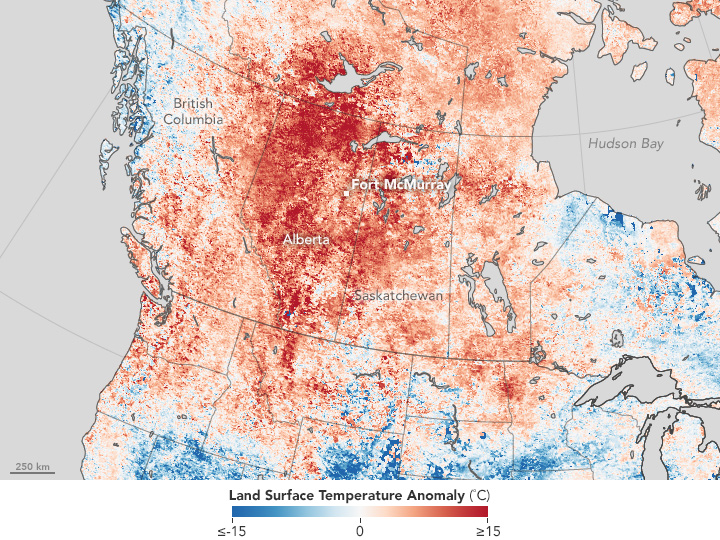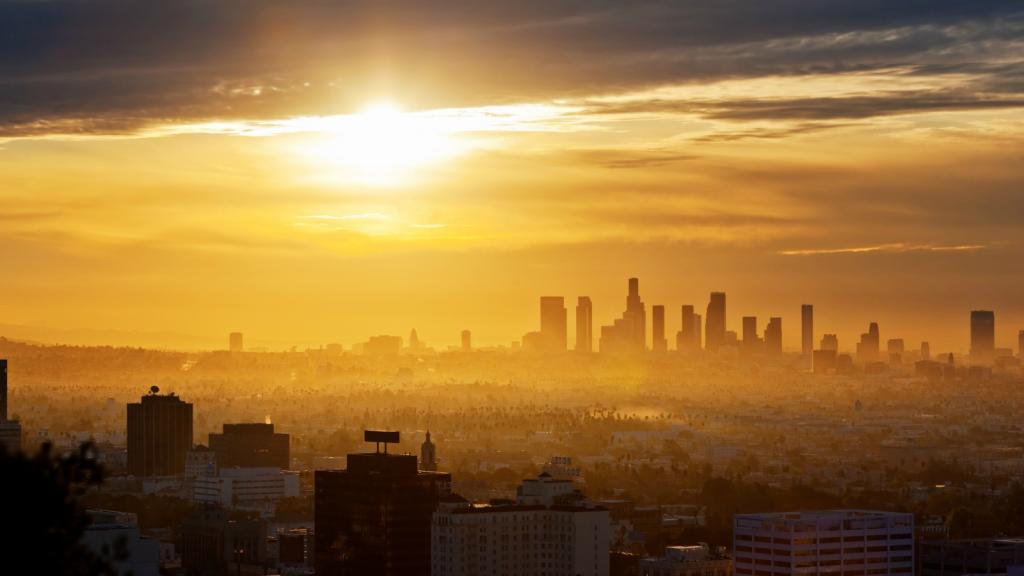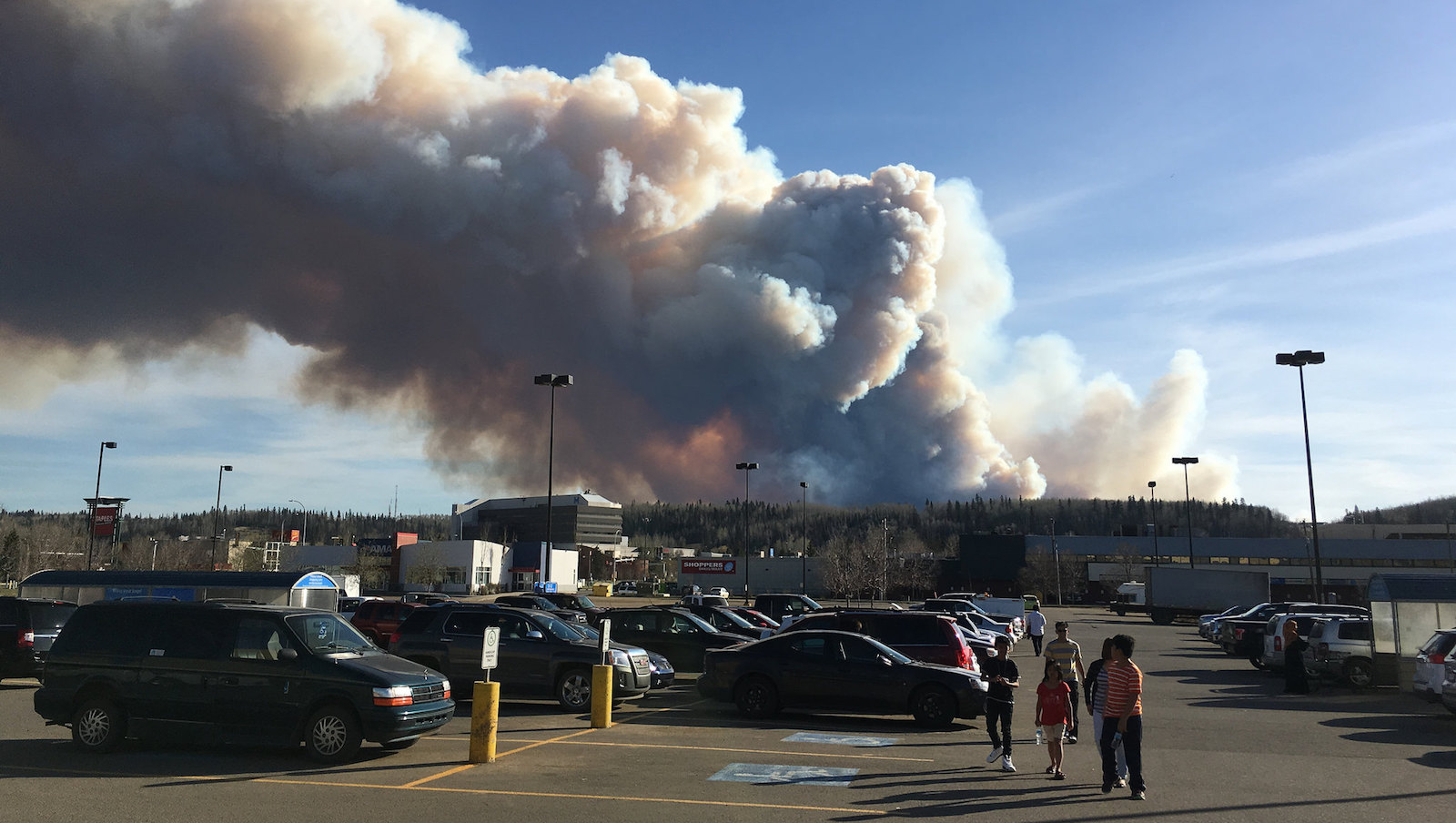Officials say the massive wildfire raging across Canada’s oil capital of Alberta will take months to extinguish. The fire has already destroyed 24,000 buildings in Fort McMurray and forced nearly 90,000 people to flee their homes, but what’s making it so hard to control?
It seems the “perfect storm” trope is appropriate here. Or, as Slate’s Eric Holthaus wrote, there’s a “messy mix of factors” behind the fire:

Land temperature anomalies from NASA satellite data April 26 to May 3, 2016.
- Humans. High temperatures, little rain help fuel a longer and larger-than-life wildfire season, and each are symptoms of climate change. But it’s possible the fire itself was manmade: Though the exact cause is unknown, according to The Canadian Press, “the fire’s proximity to the city, as well as data that shows there were no lightning strikes in the area” led a fire researcher to believe that human activity set off the initial spark.
- El Niño. The region’s exceptionally dry winter and prolonged drought is linked to a major El Niño, which turned the forests around Fort McMurray into a “tinderbox.” Of course, climate change exacerbates El Niño extremes.
- The forest. Fort McMurray is best known for its proximity to tar sands oil fields (which drove up its population in the last decade, during the oil boom). It is also surrounded by boreal forests that are really, really dry after the last few years. How could that get even worse? Well, by the species of trees that populate the area — black and white spruce — which are especially prone to spreading fire, reports the The Globe & Mail.
- The wind. Winds of 37 miles per hour over almost doubled the size of the blaze last weekend.
If there’s one thing that didn’t cause this fire, it’s karma. Seriously, why would anyone gloat that an oil town in tar sands country is getting leveled by a climate-induced disaster? As The New Yorker’s Elizabeth Kolbert notes, “we’ve all contributed to the latest inferno” because we all guzzle oil, not to mention gas and coal.
The irony is while entire communities have been destroyed by the fire, oil sands and energy facilities have remained pretty much intact.




